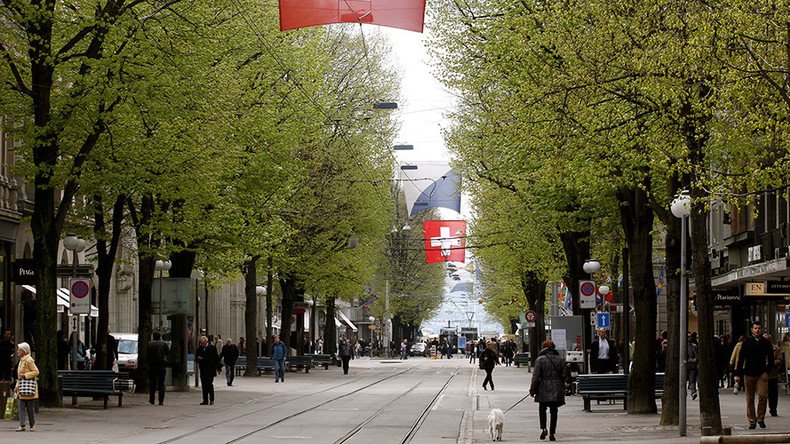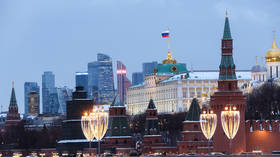Swiss voters overwhelmingly reject $2,500 basic income proposal in national referendum

More than three quarters of Swiss voters rejected a revolutionary proposal to award each adult citizen an income estimated at $2,500 per month, regardless of work status, but the idea's backers have claimed a moral victory.
"As a businessman I am a realist and had reckoned with 15 percent support, now it looks like more than 20 percent or maybe even 25 percent. I find that fabulous and sensational," said Basel cafe owner Daniel Haeni, who managed to get the plan on Sunday's ballot, which also contained four other proposals, by collecting over 100,000 signatures.
Voters to reject basic income, pay limit initiatives, Swiss broadcaster says https://t.co/oMkAuZmDRh via @cbSwisspic.twitter.com/xJLnXyuYsS
— Bloomberg Markets (@markets) June 5, 2016
"When I see the media interest, from abroad as well, then I say we are setting a trend." Haeni told local broadcaster SRF.
76.7 percent of the voters disagreed with the proposal, which did not win approval in a single one of the country's 26 cantons.
Swiss voters also rejected a scheme to limit pay for government-owned company managers, but supported an initiative to speed up asylum request processing.
Universal Basic Income (UBI), which is guaranteed payment of 2,500 Swiss francs ($2,500 or €2,250) per month - though the precise sum was never set - that would have been allocated to every Swiss resident. It has been trialed on a regional scale around the world, but has never been adopted as a national policy.
It was unclear from the idea's supporters if salaries would be counted as part of the basic income - thus turning it into more of a traditional welfare scheme - or whether everyone would be entitled to receive the money regardless.
In the run-up to the vote, the government said that the plan would produce a shortfall of about $25 billion a year, requiring higher taxes, and would damage the economy, increase unemployment, and encouraging inflation.
Supporters of the innovative proposal on the left appealed to redistribution of wealth for common good, equality and egalitarianism. Those on the right said the UBI is about cutting the power of the coercive state, reducing welfare and “promoting freedom.”
Overall, all supporters point to the fact that 21st-century jobs are increasingly automated, meaning more and more work in industries and services are being done by robots.
Basic Income Switzerland campaigners say the money is simply a human right and would bring people’s income in line with the cost of living.
Swiss town to accept bitcoin payments for govt serviceshttps://t.co/h1sAdnhzhepic.twitter.com/7LyLvtcKO6
— RT (@RT_com) May 11, 2016
The group claims it would encourage innovation as there would be more demand for technology to do the “dirty work” in life. Authorities would save money the ease of making a standard payment rather than a complex myriad of subsidies.
“The basic income strengthens the trend to automate such tasks. It creates the possibility for innovation,” the campaign claimed.
“It gives time for reflection and creates possibilities for experiences we cannot pay for.”
Naked torsos & horned beasts: Swiss tunnel’s bizarre opening leaves viewers baffled (VIDEOS)https://t.co/Rxu2if8sXQ
— RT (@RT_com) June 3, 2016













